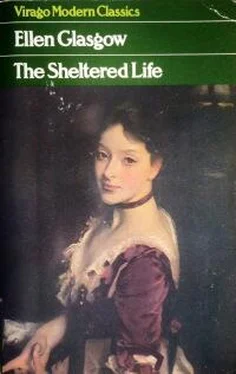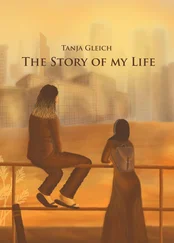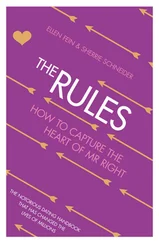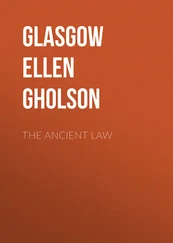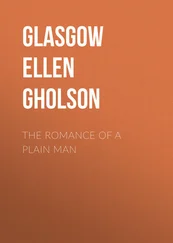Ellen Glasgow - The Sheltered Life
Здесь есть возможность читать онлайн «Ellen Glasgow - The Sheltered Life» весь текст электронной книги совершенно бесплатно (целиком полную версию без сокращений). В некоторых случаях можно слушать аудио, скачать через торрент в формате fb2 и присутствует краткое содержание. Жанр: Классическая проза, на английском языке. Описание произведения, (предисловие) а так же отзывы посетителей доступны на портале библиотеки ЛибКат.
- Название:The Sheltered Life
- Автор:
- Жанр:
- Год:неизвестен
- ISBN:нет данных
- Рейтинг книги:5 / 5. Голосов: 1
-
Избранное:Добавить в избранное
- Отзывы:
-
Ваша оценка:
- 100
- 1
- 2
- 3
- 4
- 5
The Sheltered Life: краткое содержание, описание и аннотация
Предлагаем к чтению аннотацию, описание, краткое содержание или предисловие (зависит от того, что написал сам автор книги «The Sheltered Life»). Если вы не нашли необходимую информацию о книге — напишите в комментариях, мы постараемся отыскать её.
The Sheltered Life — читать онлайн бесплатно полную книгу (весь текст) целиком
Ниже представлен текст книги, разбитый по страницам. Система сохранения места последней прочитанной страницы, позволяет с удобством читать онлайн бесплатно книгу «The Sheltered Life», без необходимости каждый раз заново искать на чём Вы остановились. Поставьте закладку, и сможете в любой момент перейти на страницу, на которой закончили чтение.
Интервал:
Закладка:
Breathing hard, she shut her eyes tight and opened them quickly. This was a magic spell to make the world more surprising; and enchantment worked immediately upon the sky, the sycamore, and the rich bloom of the walled garden. In the garden, which was reached by stone steps from the back porch, splendour flickered over the tall purple iris that fringed the bird-bath, and rippled like a bright veil over the grass walks and flower-beds. A small place, but it held beauty. Beauty, and that deep stillness through which time seems to flow with a perpetual rhythm and pause. On the edge of the bird-bath a robin stood drinking. Farther away, two black and yellow butterflies spun round and round, without flight, as if they were attached to invisible threads. Only at long intervals, when the breeze died down and sprang up again, was the tranquil air brushed by a roving taint, a breath of decay, from the new chemical factory near the river. Now rising, now falling, the smell was scarcely more than a whiff that came and went on the wind. Scarcely more than a whiff, yet strong enough, when the houses were open, to spoil the delicate flavour of living.
"Mamma," Jenny Blair called, turning her head from the garden, "that bad smell has come back again."
"I know, my child, but your grandfather says there is nothing to be done about it."
Ever since the War Between the States had transformed opulent planters into eminent citizens, a dozen old country families had clung to the lower end of Washington Street. Here they had lived, knit together by ties of kinship and tradition, in the Sabbath peace that comes only to those who have been vanquished in war. Here they resisted change and adversity and progress and here at last they were scattered by nothing more tangible than a stench. Those who could afford a fashionable neighbourhood fled in the direction of Granite Boulevard. Others retired to modest Virginian farms. Only the Archbalds and the Birdsongs, at the other end of the block, stood their ground and watched the invasion of ugliness. The Birdsongs stayed because, as they confessed proudly, they were too poor to move and the Archbalds stayed because the General, in his seventy-sixth year but still incapable of retreat, declared that he would never forsake Mrs. Birdsong. Industrialism might conquer, but they would never surrender.
One by one, they saw the old houses demolished, the fine old elms mutilated. Telegraph poles slashed the horizon; furnaces, from a distance, belched soot into the drawing-rooms; newspapers, casually read and dropped, littered the pavements; when the wind shifted on the banks of the river, an evil odour sprang up from the hollow. Still undaunted, the two families held the breach between the old and the new order, sustained by pride and by some moral quality more enduring than pride. After all, they might have asked, were they not defending their homes from a second invasion? Moreover, so long as Mrs. Birdsong remained, Washington Street might decline, but it could not be entirely stripped of its old elegance. As Eva Howard, Mrs. Birdsong had been a famous beauty in the eighteen nineties; and the social history of Queenborough was composed wherever she decided to live that history. As late as the spring of 1906, she was still regarded less a woman than as a memorable occasion. Rumours sped from door to door as she walked down the street; crowds gathered at corners or flocked breathlessly to the windows of clubs. In her middle thirties, and married for twelve years to a man who was unworthy of her, she had already passed into legend. Romantic stories were told of her girlhood. Not only had her beauty delayed wedding processions, but once, it was said, she had even retarded a funeral when she happened to enter Rose Hill Cemetery just as the pallbearers were lowering a coffin into a grave.
"Jenny Blair, are you getting on with your book?" With her hand poised above the coat of blue piqué she was braiding in white, Mrs. Archbald turned her animated glance toward the French window. At thirty-nine, she was still attractive and fresh-coloured, plump, but not too plump to be comfortable in stays of the more liberal Edwardian style.
"Jenny Blair," she called again in an imperative tone, "do you hear me?"
"Yes, Mamma, but I'm thinking."
"Thinking?" repeated Aunt Etta, who was frail and plain and sickly. "What on earth do you have to think about, Jenny Blair?"
"Nothing, Aunt Etta."
"How, my dear, can you think about nothing?"
"Aren't you getting on with your book?" Mrs. Archbald asked, removing a pin from her mouth and running it into the sleeve of the piqué coat. "I hope it isn't too old for you. Are you sure you understand what you're reading?"
"Oh, Mamma, it is so dreadfully poky."
"Poky? Why, I could never have too much of Little Women when I was a girl. I remember I tried to form my character on Meg—or it may have been Jo. But I can't understand children to-day. I don't know what they're coming to."
"How soon may I stop, Mamma?"
"Finish that chapter, and then we'll see what time it is."
"But I've just begun a new chapter."
"Well, finish it anyhow. Your grandfather will be sure to ask how much you've read."
"Do you think he will pay me when I'm half through? I need a new pair of roller-skates more than anything in the world. There is a very nice pair in Mrs. Doe's window for a dollar and a half."
After thirty years of disfavour, roller-skating had wheeled again into fashion. In the spring of 1906 all the world skated, especially young women of leisure, who admired themselves in the tight fur-trimmed jackets and new ankle-length skirts, which were worn with jaunty little caps in the skating-rinks. Aunt Isabella, who was handsome and bold and dashing, with a figure that looked as if it had been melted and poured into her princess robe of black satin, had attended the opening gaieties in the fine new rink in Broad Street.
"Where is the pair I gave you last Christmas?" Aunt Etta called sharply.
"They're broken, Aunt Etta. One of the rollers won't roll right. It tripped me up yesterday, and I fell down and scraped my knee."
"Perhaps Amos can mend it."
"He did mend it, but it came unfixed right away. Do you think, Mamma, that Grandfather will let me have a dollar and a half when I've read a hundred and fifty pages?"
"I'm not sure, dear." Her mother's tone was softer than Aunt Etta's. "He may, if he thinks you've read in the proper spirit."
Jenny Blair sighed. "I wish he'd pay me for reading French."
"Didn't he reward you when you finished A French Country Family?"
"Oh, I don't mean that. I mean real French, the kind Aunt Etta is always reading." For she was persuaded, after observing Aunt Etta's way with books in yellow covers, that all the really interesting things were written in the French language.
"You aren't far enough advanced for that, dear," Aunt Etta was sympathetic but discouraging, "though you are doing very nicely with your French conversation."
"Come here a minute, darling." Mrs. Archbald raised her pleasant voice in command. "I want to see if I've got the right length for this coat. What I can never understand about Jenny Blair," she added to her sister-in-law, "is the way she is so far ahead in some things and so backward in others."
"Well, we were all that way," Etta said consolingly. "I'm sure she seems very bright when you compare her with Bena Peyton."
"But Bena has a nice plump little figure, and Jenny Blair is as straight as a pole."
Rising obediently, Jenny Blair tripped with reluctant feet into the library, and stood patiently between her mother and Aunt Etta while the coat was slipped over her shoulders and fastened with a safety-pin on her flat little chest. She was a golden wisp of a child, with soft flaxen hair, a shower of freckles over her small snub nose, and a vague rosy mouth which melted into a short dimpled chin. Though she was not pretty, she had inherited the yellow-hazel eyes and the wide, expectant gaze of the Archbalds. While she stood there, she shifted uneasily on her feet, and, because she hated trying on more than anything in the world, desperately invoked the power of pretense.
Читать дальшеИнтервал:
Закладка:
Похожие книги на «The Sheltered Life»
Представляем Вашему вниманию похожие книги на «The Sheltered Life» списком для выбора. Мы отобрали схожую по названию и смыслу литературу в надежде предоставить читателям больше вариантов отыскать новые, интересные, ещё непрочитанные произведения.
Обсуждение, отзывы о книге «The Sheltered Life» и просто собственные мнения читателей. Оставьте ваши комментарии, напишите, что Вы думаете о произведении, его смысле или главных героях. Укажите что конкретно понравилось, а что нет, и почему Вы так считаете.
